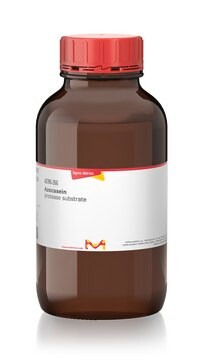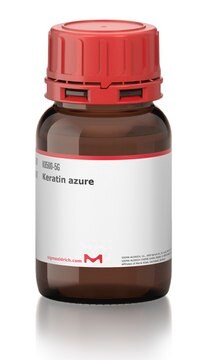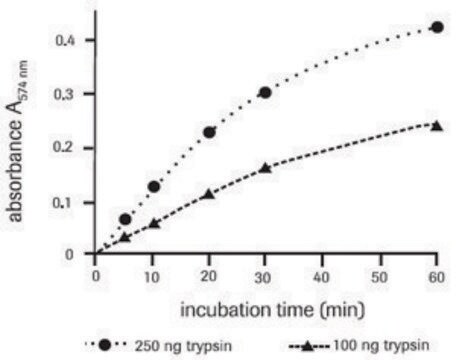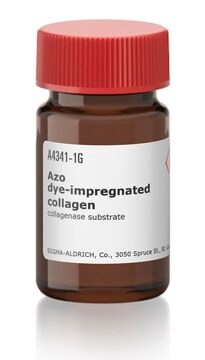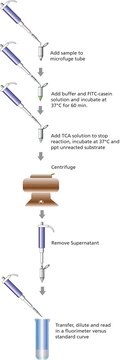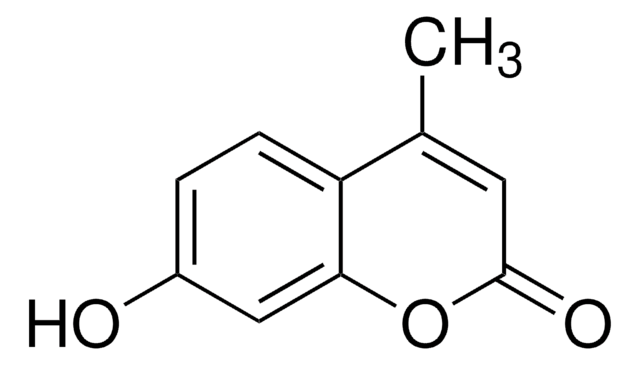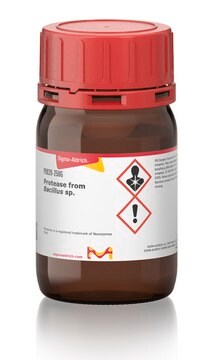A2382
Azoalbumin
protease substrate
Synonym(s):
Sulfanilic acid-azoalbumin
About This Item
Recommended Products
biological source
bovine
Quality Level
form
powder
concentration
60-90% (Lowry)
technique(s)
tissue culture: suitable
solubility
0.01 M HCl: soluble 25 mg/mL
storage temp.
2-8°C
General description
Application
- as a substrate for enzymatic assay of hyphal extracts
- for screening general protease activity in spent growth medium extract
- for screening S. rolfsii proteases
Preparation Note
Substrates
Storage Class Code
11 - Combustible Solids
WGK
WGK 3
Flash Point(F)
Not applicable
Flash Point(C)
Not applicable
Personal Protective Equipment
Regulatory Listings
Regulatory Listings are mainly provided for chemical products. Only limited information can be provided here for non-chemical products. No entry means none of the components are listed. It is the user’s obligation to ensure the safe and legal use of the product.
JAN Code
A2382-10G:
A2382-5G:
A2382-BULK:
A2382-250MG:
A2382-1G:
A2382-VAR:
Choose from one of the most recent versions:
Already Own This Product?
Find documentation for the products that you have recently purchased in the Document Library.
Customers Also Viewed
Our team of scientists has experience in all areas of research including Life Science, Material Science, Chemical Synthesis, Chromatography, Analytical and many others.
Contact Technical Service